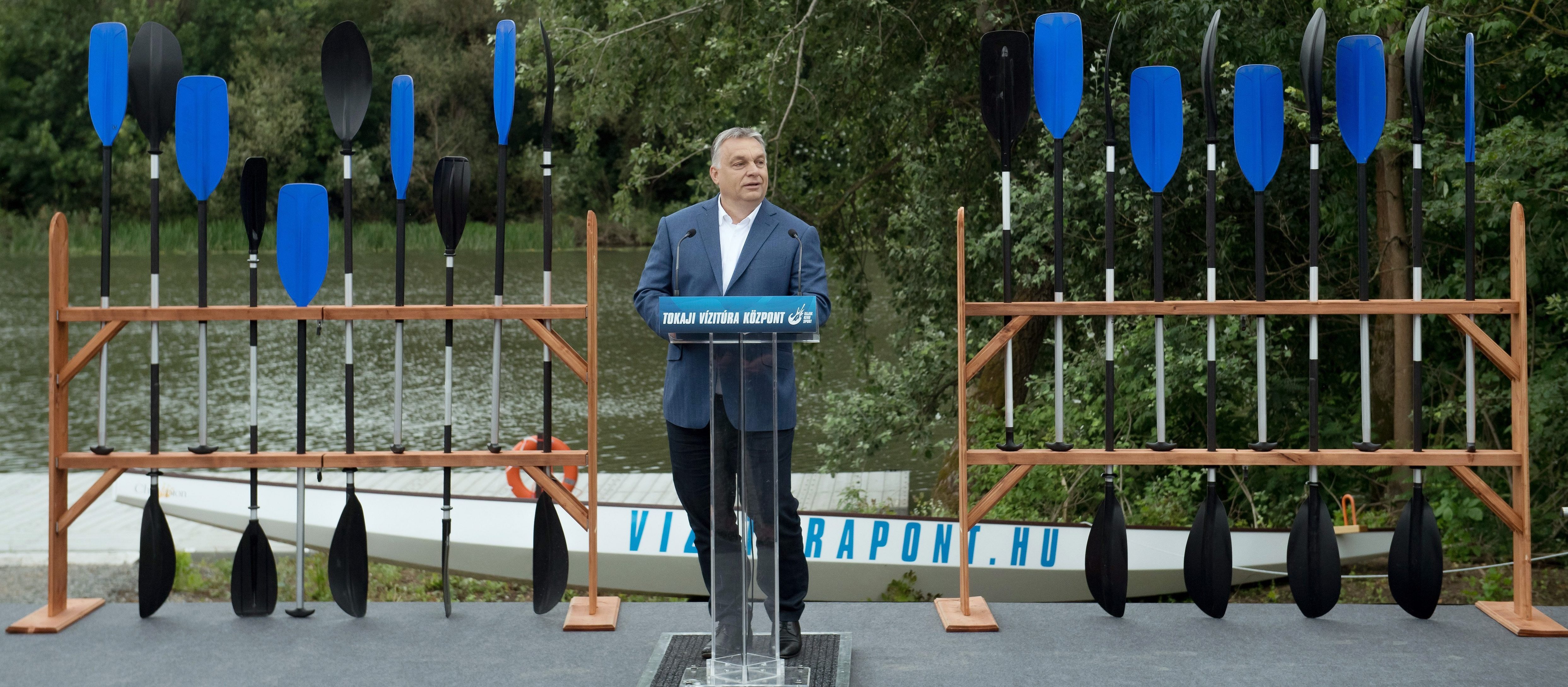
The Prime Minister stressed that everyday patriotism, when “we fall under the spell of our homeland”, also serves to ensure the country’s continued survival.
Expanding on Europe’s future, he observed that only those countries in which there is patriotism will remain standing.
The Government’s goal, he said, is that by 2030 the lifestyles of Hungarians will be among the healthiest in Europe. At the moment, he added, Hungarians’ respect for their top athletes is not reflected in their everyday lives, as they are among the continent’s least physically active nations – with only 36 per cent of young people regularly participating in sporting activity.
The Prime Minister pointed out that sports and leisure activities will also receive priority funding in next year’s budget.

Mr. Orbán outlined the tasks in this area as the battle against unhealthy foodstuffs, a reduction in the number of people smoking, support for daily physical education classes, and the organisation of “Erzsébet Camps” and adventure camps for children. He mentioned that this year Erzsébet Camps will not only be at Lake Balaton, but also in Transylvania.
He highlighted that freeing themselves of their troubles, people can send their children to summer camps, and sports facilities similar to that in Tokaj can be built. He said that “Hungary may yet be able to get off the sofa and transform itself from a nation of sports fans into a nation of sports players”.
Mr. Orbán noted that the Government is investing a large amount in the construction of cycle paths and the promotion of hiking. He stressed the importance of the fact that this year 7,500 students have enrolled for canoeing and cycling camps. Regarding regional developments, he said that a cycle path will soon be incorporated in the Tisza Bridge at Tokaj.

Gábor Schmidt, President of the Hungarian Canoe Federation, believes there is a unique opportunity for canoe tourism to become an attractive product in Hungary. He said that a priority goal of the Government is for Hungary to become a nation engaged in sports, and both local governments and tourist organisations are also partners in the related developments.
He observed that there are fourteen new or refurbished support stations for canoeing on the Upper Tisza, while nationwide some one hundred and fifty sites are linked to the canoeing tourism network.
László Foltán, head of the Canoe Tourism Programme, said that there are now six registered canoe tourism routes in the country, on which this year some 3,500 children will be taking to the water. Their goal, he said, is for every one of these children to fall in love with the sport on these tours and become committed participants in sport.
